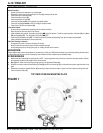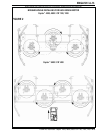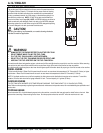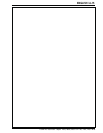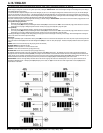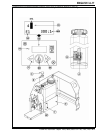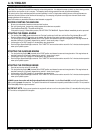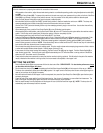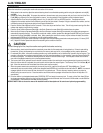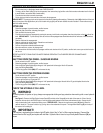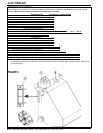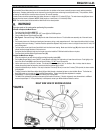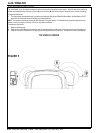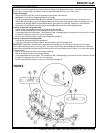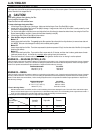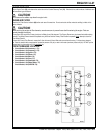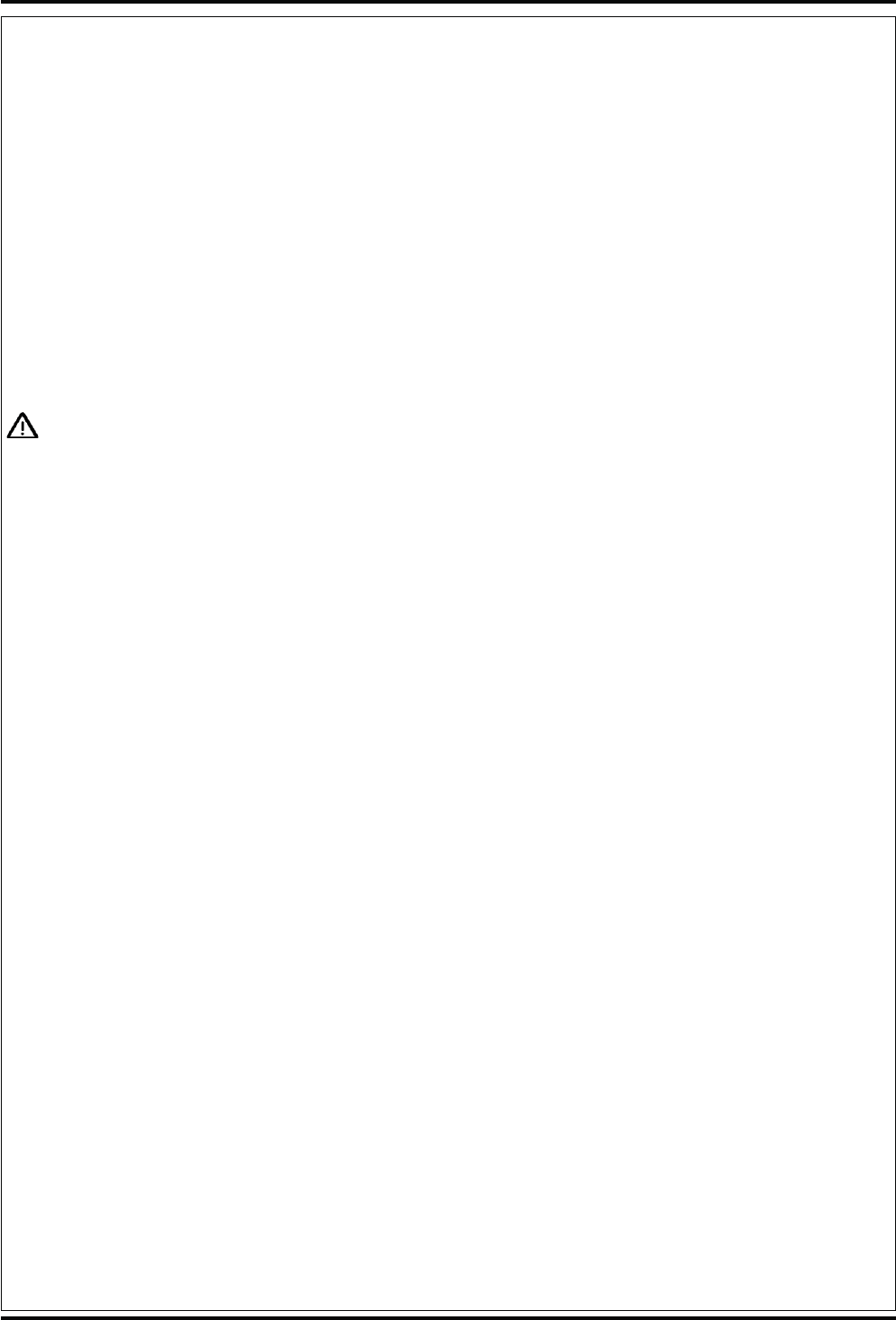
A-20 - FORM NO. 56041580 - Captor
™
4300, 4800, 5400 / CR 1100, 1200, 1400
A-20 / ENGLISH
SCRUBBING
Follow the instructions in preparing the machine for use section of this manual.
1 While seated on the machine, adjust the seat and steering wheel to a comfortable operating position using the adjustment controls (51)
and (NN).
2 Release the Parking Brake (GG). To transport the machine to the work area, apply even pressure with your foot on the front of the Drive
Pedal (OO) to go forward or the rear of the pedal for reverse. Vary the pressure on the foot pedal to obtain the desired speed.
3 Adjust the Solution Flow Control Lever (HH) to about 1/4 to 1/3 open (40%-100% on AXP/EDS) position. The adjustment can be
changed to allow variable solution ow for different types of oors to be scrubbed. Example: A rough or absorbent oor surface, such as
un nished concrete will require more solution than a smooth nished oor.
4 Press the Solution Switch (K) and hold for 5 seconds. This is done to pre-wet the oor. Note: This will help prevent scarring of the oor
surface when starting to scrub with dry brushes.
5 Press the Scrub Pressure Decrease Switch (H) or the Scrub Pressure Increase Switch (I) to activate the scrub system.
6 When the Scrub Pressure Decrease Switch (H) or the Scrub Pressure Increase Switch (I) are selected, the brushes and squeegee are
automatically lowered to the oor. The machine’s scrub brush rotation, solution system ow, detergent ow(AXP/EDS only) and vacuum
starts when the Drive Pedal (OO) is activated. Note: When operating the machine in reverse, only the brushes will rotate, the solution
and detergent(AXP/EDS only) is automatically shut off and the squeegee raises.
7 Begin scrubbing by driving the machine forward in a straight line at a normal walking speed and overlap each path by 2-3 inches (50-75
mm). Adjust the machine speed and solution ow according to the condition of the oor.
CAUTION!
To avoid damaging the oor, keep the machine moving while the brushes are turning.
8 When scrubbing, check behind the machine occasionally to see that all of the waste water is being picked up. If there is water trailing
the machine, you may be dispensing too much solution, the recovery tank may be full, or the squeegee tool may require adjustment.
9 For extremely dirty oors, a one-pass scrubbing operation may not be satisfactory and a “double-scrub” operation may be required. This
operation is the same as a one-pass scrubbing except on the rst pass the squeegee is in the up position (press the Vacuum Switch (Z)
to raise the squeegee). This allows the cleaning solution to remain on the oor to work longer. The nal pass is made over the same
area, with the squeegee lowered to pick up the accumulated solution.
10 The recovery tank has an automatic vacuum shut-off to prevent solution from entering the vacuum system when the recovery tank is full.
When the vacuum shut-off is activated, the control system will shut down the vacuum system. The Recovery Tank FULL Indicator (M) will
light. When the vacuum shut-off is activated, the recovery tank must be emptied.
11 When the operator wants to stop scrubbing or the recovery tank is full, press the Scrub System OFF Switch (AA) once. This will
automatically stop the scrub brushes, solution ow, detergent ow(AXP/EDS only) and the scrub deck will raise UP. NOTE: the vacuum/
squeegee system will not be turned off when the switch is only pressed once. This is to allow any remaining water to be picked up
without turning the vacuum back on. Press the switch a second time and the squeegee will raise and the vacuum will stop after a 10
second delay.
12 Drive the machine to a designated waste water “DISPOSAL SITE” and empty the recovery tank. To empty, pull the Drain Hose (7) from
its storage area and then remove the plug (hold the end of the hose above the water level in the tank to avoid sudden, uncontrolled ow
of waste water). Re ll the solution tank and continue scrubbing.
SERVICE NOTE: Refer to the service manual for detailed functional descriptions of all controls and optional programmability.
revised 11/07



